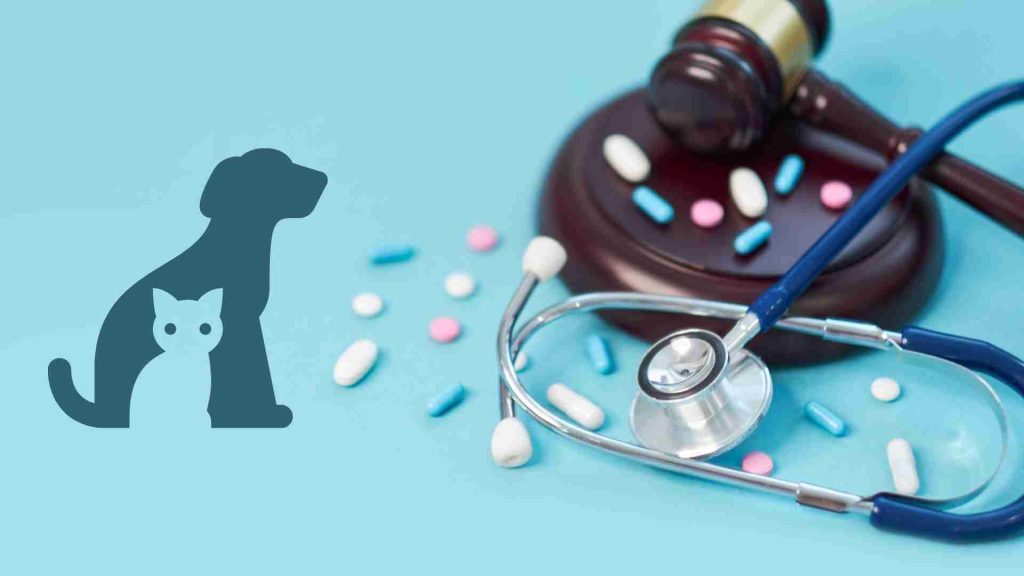A medication error is an undesirable, unintended act in a drug administration process such as ordering, transcribing, dispensing, or administering a drug product. Communication between the veterinarian and the client is crucial in preventing these errors. When your doctor prescribes medications for you or your child, it’s essential to understand why the veterinarian is ordering or prescribing the medication. Here are some questions you can ask:
- What is the name and purpose of the medication?
- Is it compatible with other medications my pet is currently using?
- What are the dangers involved in using your pet’s medicine, and what steps should I take to ensure my pet’s safety?
- It is essential to shake the liquid before use.
- What is the appropriate dosage?
- How often should you use this medication?
- How much do I need to give?
- What if you forget to provide a dose?
- If an animal vomits or spits out its food, you should re-feed it.
- Is it essential to properly store the medication safely, dry place, and dispose of unused medicines?
- Do I administer the remaining medicines, even if my pet seems healthy?
It is essential to consult your veterinarian before giving your pet a new prescription or visiting that veterinarian for the first time. Here are some suggestions that might help.
- You should keep a list of drugs your pet takes and include over-the-counter drugs, supplements, and prescription drugs. Bring this list with you when you visit your veterinarian.
- Please inform the veterinarian of any drugs your pet is allergic to and/ or has had problems with in the past.
- Pay attention to any signs of illness in your pet, such as persistent vomiting, diarrhea, or lethargy.
Follow these tips to help you avoid medication errors and accidental medication exposures at home:
- When using pesticides, read and follow the label’s directions.
- Do not cut, crush, or break an extended-release tablet unless your veterinarian tells you to do so. If your veterinarian tells you to cut the tablet in half, use a pill cutter (available at most drugstores) and follow the instructions to get the correct amount of medicine.
- Store your animal’s medications and supplements in their original containers.
- It is not advisable to administer drugs prescribed for one animal to another without a veterinarian’s permission.
- When storing drugs, be sure to keep them separate from human-use medications. This will prevent the occurrence of an accidental mix-up and reduce the risk of humans being accidentally exposed to animal drugs.
- Store all animal drugs out of reach of household pets. Flavorings in chewable tablets may encourage household pets to seek out and consume these products, which could result in severe accidental overdoses.
- Animal drugs should be stored out of reach of children.
- To ensure your pet’s safety, keep all medications for humans out of your pet’s reach. If you suspect an overdose, contact your veterinarian immediately.
Veterinary medication errors should be reported to the relevant licensing board.
In the course of receiving treatment, be sure to report all medication errors, including those that are not associated with an adverse event. Such reporting allows us to monitor and prevent mistakes that may lead to adverse events.
- A severe adverse event, such as death, may occur if a medication is administered improperly. Suppose a veterinarian or an animal owner reports a severe adverse event to the drug company. In that case, the company is required to make the report to the Food and Drug Administration (FDA) within 15 working days.
- In some instances, a medication error may not harm the patient. Examples include when a drug is dispensed to a patient but is caught before it is administered or given or when a veterinarian or animal owner notices and reports potential confusion between medications with similar labels or names. CVM encourages the voluntary reporting of medication errors by veterinarians, veterinary technicians/nurses, pharmacists, pharmacy technicians, and animal owners, regardless of whether they result in harm to the patient.
Veterinarians and other health practitioners may immediately submit adverse drug experience reports to the FDA using Form FDA 1932a, “Veterinary Adverse Experience, Lack of Effectiveness or Product Defect Report”. This Form should be provided to drug manufacturers upon request. The Form can be used to report medication errors with or without adverse events for any animal drug (approved or not approved by FDA) or animal device. Unapproved animal drugs include compounded drug products.
- Download/open the fillable 1932a electronic form
- Please see the attached file, complete the Form, and email it to CVM1932a@fda.hhs.gov
CVM Guidance for Reporting Adverse Events more…
- Reporting Animal Drug and Device Side Effects and Product Problems
- Manufacturers of veterinary drugs should report adverse events associated with those drugs to the FDA.
Decision Making Notes
Acu-Process Manufacturing offers a state-of-the-art Enterprise Resource Planning (ERP) solution, Acu-Process Manufacturing (APM), which can help you manage your business processes easily while complying with the FDA. Please get in touch with one of our ERP experts today to learn how APM can make your business run more efficiently. Schedule a call!

Sangeetha brings 20 years of experience in Information Technology which includes Solution architecting, building micro services, research, and evaluation of business applications, integrating apps.

